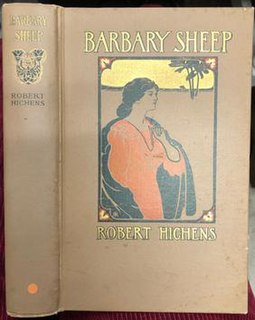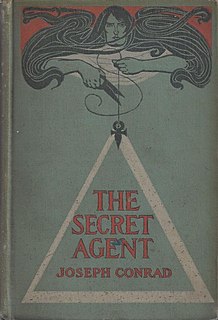 W
WBarbary Sheep is a 1907 novel by the British writer Robert Hichens. In common with much of the author's work, it has a North African setting.
 W
WBeau Brocade is a 1907 novel written by Baroness Orczy and was followed by the play of the same name in 1908. It was adapted as a silent film Beau Brocade in 1916. The Ballad of Beau Brocade, was an 1892 poem by English Poet Henry Austin Dobson.
 W
WThe Boats of the "Glen Carrig" is a horror novel by English writer William Hope Hodgson, first published in 1907. Its importance was recognised in its later revival in paperback by Ballantine Books as the twenty-fifth volume of the celebrated Ballantine Adult Fantasy series in February 1971.
 W
WThe Enchanted Castle is a children's fantasy novel by Edith Nesbit first published in 1907.
 W
WFair Margaret is a 1907 novel by H. Rider Haggard set in the time of Henry VII. The plot features the abduction of the titular heroine and her adventures in Spain, including a meeting with King Ferdinand and Queen Isabella of Spain.
 W
WThe Hill of Dreams is a semi-autobiographical novel by the Welsh writer Arthur Machen.
 W
WThe Longest Journey is a bildungsroman by E. M. Forster, first published in 1907. It is the second of Forster's six published novels, following Where Angels Fear to Tread (1905) and preceding A Room with a View (1908) and Howards End (1910). It has a reputation for being the least known of Forster's novels, but was also the author's personal favourite and one of his most autobiographical. It is the only one of Forster's novels not to have received a film or television adaptation.
 W
WLord of the World is a 1907 dystopian science fiction novel by Monsignor Robert Hugh Benson that centres upon the reign of the Antichrist and the end of the world. It has been called prophetic by Dale Ahlquist, Joseph Pearce, Pope Benedict XVI and Pope Francis.
 W
WThe Man Who Was Thursday: A Nightmare is a novel by G. K. Chesterton, first published in 1908. The book is sometimes referred to as a metaphysical thriller.
 W
WNot George Washington is a semi-autobiographical novel by P. G. Wodehouse, written in collaboration with Herbert Westbrook. The United Kingdom is the country of first publication on 18 October 1907 by Cassell and Co., London.
 W
WPip is a 1907 novel by the British writer Ian Hay. His debut work, its title hero is a schoolboy.
 W
WThe Secret Agent: A Simple Tale is a novel by Joseph Conrad, first published in 1907. The story is set in London in 1886 and deals with Mr Adolf Verloc and his work as a spy for an unnamed country. The Secret Agent is one of Conrad's later political novels in which he moved away from his former tales of seafaring. The novel is dedicated to H. G. Wells and deals broadly with anarchism, espionage and terrorism. It also deals with exploitation of the vulnerable in Verloc's relationship with his brother-in-law Stevie, who has a learning difficulty. Conrad’s gloomy portrait of London depicted in the novel was influenced by Charles Dickens’ Bleak House.
 W
WThe Tangled Skein was Baroness Orczy's second novel. First published under the title In Mary's Reign in 1901, it was re-released under the title The Tangled Skein in 1907, following the success of The Scarlet Pimpernel.
 W
WThe War in the Air: And Particularly How Mr. Bert Smallways Fared While It Lasted, a military science fiction novel by H. G. Wells, written in four months in 1907 and serialised and published in 1908 in The Pall Mall Magazine, is like many of Wells's works notable for its prophetic ideas, images, and concepts—in this case, the use of the aircraft for the purpose of warfare and the coming of World War I. The novel's hero is Bert Smallways, a "forward-thinking young man" and a "kind of bicycle engineer of the let's-'ave-a-look-at-it and enamel-chipping variety."
 W
WThe White Feather is a novel by P. G. Wodehouse, first published on 9 October 1907 by A & C Black, London. It is set at Wrykyn school, scene of Wodehouse's earlier book The Gold Bat (1904), and the later Mike (1909). Like many early Wodehouse novels, the story first appeared as a serial in the boys' magazine The Captain, between October 1905 and March 1906. The phrase "white feather" is a reference to cowardice.